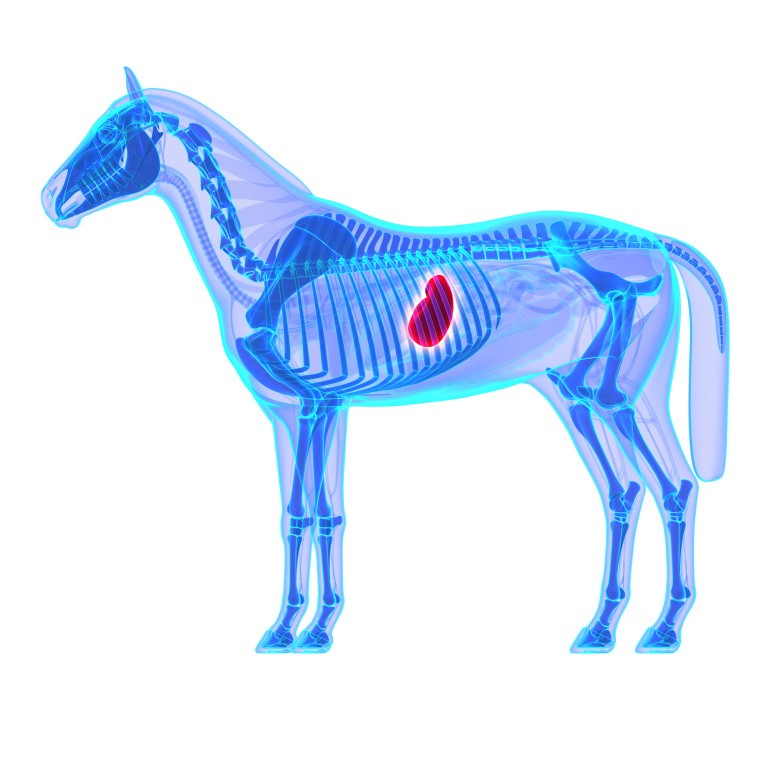Gastric ulcers are one of the most common digestive disorders in horses, especially in athletic horses. Caused by several factors such as stress, intensive training, diet or even lifestyle, this stomach pain can set in and gradually damage the horse's stomach.
What exactly are ulcers?
Ulcers are lesions found in the lining of the stomach. They vary in size and depth. They are caused by an imbalance in the secretion of gastric acid. Although necessary for the digestion of food, this hydrochloric acid has a corrosive effect on the gastric mucosa if its production is not well regulated by mucus and food.
If the stomach is not properly protected, the acid starts to eat through the lining, and then deeper and more serious lesions form on the mucous membrane of the stomach: these are then called ulcers.
There are many types and stages of ulcers. ‘Primary squamous’ lesions are most common in race and sport horses. More critical cases may be possible, with anaemia and peritonitis

What are the symptoms of ulcers?
Horses can display numerous symptoms. Ulcers often result in a deterioration of the general condition, depression, and digestive problems such as colic. The horse shows signs of discomfort and even pain, especially after eating. Behavioural changes, teeth grinding, and decreased athletic performance may also be observed. It should be known that horses have different degrees of tolerance to ulcers, it is possible that certain horses display few or no visible symptoms.
How can ulcers be prevented and treated effectively?
Ulcers are often related to the lifestyle of horses. Thus, in order to prevent them, it is necessary to first establish an appropriate diet and dietary measures so as to limit the risk factors: provide small meals of concentrates at set times, avoid fasting periods, distribute free-choice hay, put the horses out to pasture as much as possible and limit stressful situations. It is also recommended to deworm often to avoid the presence of horse flies in the stomach.
A gastroscopy may be performed to directly visualise the ulcers in the stomach. Once diagnosed, treating a horse with ulcers involves lowering the gastric pH of the stomach and reducing irritation of the mucous membranes. How? By using anti-acid treatments, gastrointestinal absorbents, proton pump inhibitors, or even dietary supplements containing Aloe vera and other ingredients. The treatment will depend on the stage of the disease and on veterinary recommendations.
To support horses that are prone to ulcers, Paskacheval offers Paskastomac, a supplement in powder form that is especially designed to protect the stomach via a complex formulation based on pectin, clay, sodium bicarbonate, Aloe vera and probiotics.
Where to find Paskacheval products?
Find your nearest sales outlet
Paskacheval is a range of plant-based feed supplements and external care products designed to enhance the performance and well-being of every horse.

